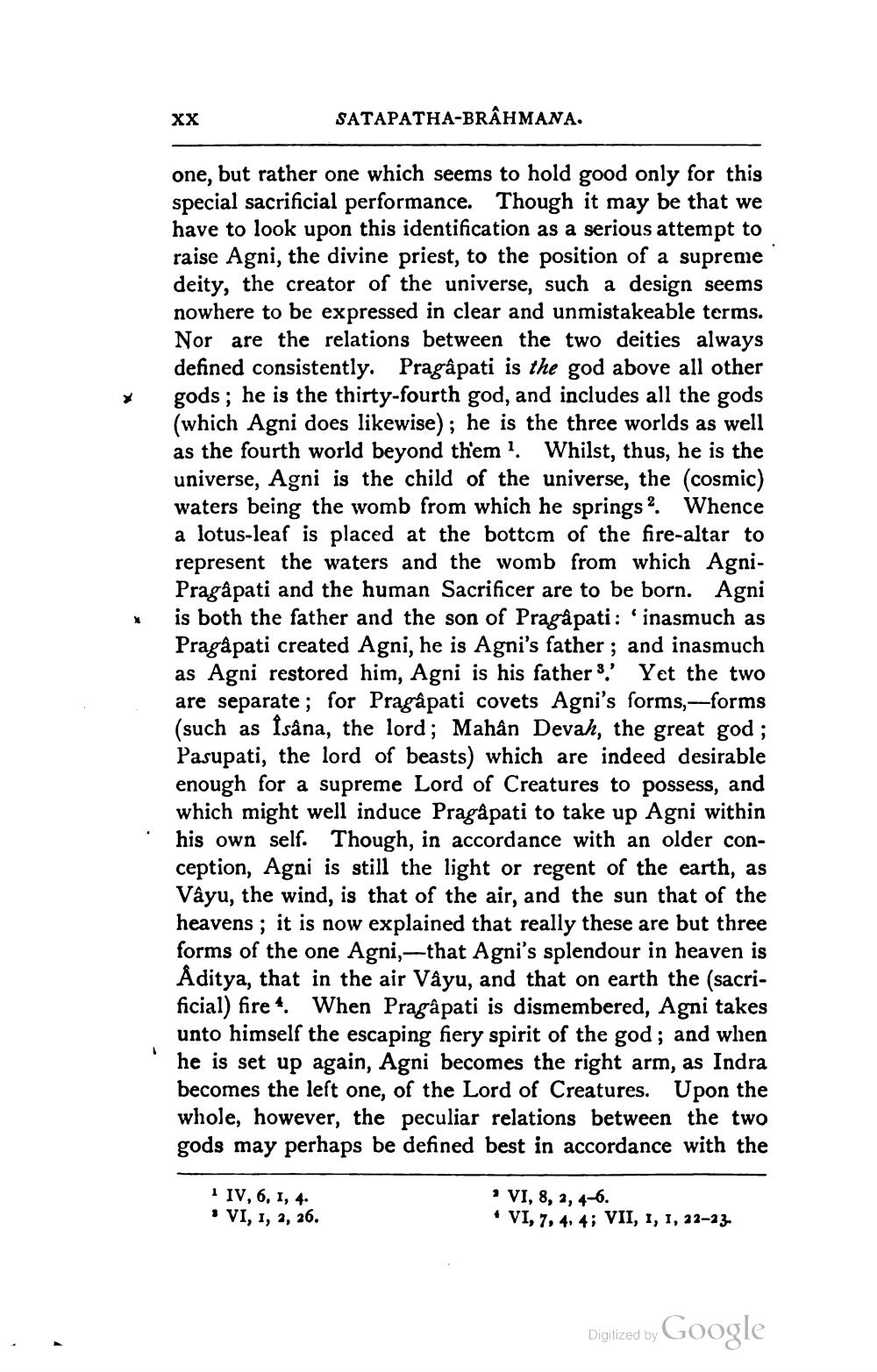________________
XX
SATAPATHA-BRAHMANA.
one, but rather one which seems to hold good only for this special sacrificial performance. Though it may be that we have to look upon this identification as a serious attempt to raise Agni, the divine priest, to the position of a supreme deity, the creator of the universe, such a design seems nowhere to be expressed in clear and unmistakeable terms. Nor are the relations between the two deities always defined consistently. Pragâpati is the god above all other gods; he is the thirty-fourth god, and includes all the gods (which Agni does likewise); he is the three worlds as well as the fourth world beyond them. Whilst, thus, he is the universe, Agni is the child of the universe, the (cosmic) waters being the womb from which he springs ? Whence a lotus-leaf is placed at the bottom of the fire-altar to represent the waters and the womb from which AgniPragâ pati and the human Sacrificer are to be born. Agni is both the father and the son of Pragâpati: 'inasmuch as Pragâ pati created Agni, he is Agni's father; and inasmuch as Agni restored him, Agni is his father 3! Yet the two are separate; for Pragâpati covets Agni's forms,--forms (such as I sâna, the lord; Mahân Devah, the great god; Pasupati, the lord of beasts) which are indeed desirable enough for a supreme Lord of Creatures to possess, and which might well induce Pragå pati to take up Agni within his own self. Though, in accordance with an older conception, Agni is still the light or regent of the earth, as Vayu, the wind, is that of the air, and the sun that of the heavens ; it is now explained that really these are but three forms of the one Agni,--that Agni's splendour in heaven is Aditya, that in the air Våyu, and that on earth the (sacrificial) fire 4. When Pragâpati is dismembered, Agni takes unto himself the escaping fiery spirit of the god; and when he is set up again, Agni becomes the right arm, as Indra becomes the left one, of the Lord of Creatures. Upon the whole, however, the peculiar relations between the two gods may perhaps be defined best in accordance with the
1 IV, 6, 1, 4. • VI, 1, 2, 26.
• VI, 8, 2, 4-6. * VI, 7, 4, 4; VII, 1, 1, 22-23
Digitized by Google




